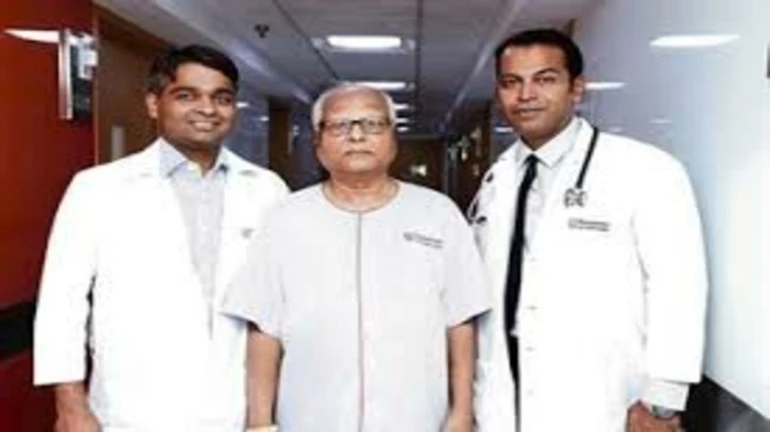
Tofazzal Hossain, a 62-year-old citizen from Bangladesh and a syncope patient got operated an implantable cardiac monitor device in Nanavati Hospital, Mumbai. The device will record the patient’s ECG every minute for the next three years.
Hussain was leading a normal life until 2010 when he started suffering from syncope, which means sudden passing out or blackout episodes. These episodes occurred at any time of the day, even while Hossain went about his daily chores and was followed by weakness for the next 2-3 days. Subsequently, he was thoroughly investigated at multiple centres and by many doctors in Bangladesh, but the exact cause of his syncope episodes was not found.
As the frequency of the episodes increased, the patient decided to visit a better cardiac centre in India and chose to visit the Nanavati Super Speciality Hospital in Mumbai, where he consulted Dr Salil Shirodkar, Interventional Cardiologist, who reviewed his previous reports and arrived at the conclusion that the patient will require continuous monitoring of his heart rhythm. This continuous monitoring will help him record his cardiac rhythm.
The patient was advised to insert an implantable loop recorder that will help track his ECG 24x7 for the next three years. This will help the doctor and his team understand and record the ECG at the time of a blackout episode, to ascertain the exact reasons for these occurrences.
The operation was a rare procedure, performed by Dr Shirodkar and a team of experts for the first time in Maharashtra. An implantable loop recorder, which is a very small device, was inserted under the skin of the chest wall under local anaesthesia. The device is helping them monitor his condition while he is away in Bangladesh. The device will record the patient’s heart rhythm continuously, similar to taking continuous ECGs, with any abnormal rhythm immediately sent to the concerned doctor as a mobile alert. The doctor can view the abnormal rhythm online.
This device helps to record cardiac rhythm at the time of the syncopal event and will help in diagnosis and treatment. It can be inserted quickly and with a minimally invasive procedure. This device comes with Bluetooth wireless technology. In cases like these, such devices are helpful for the patient and their families who are away and need a doctor's consultation immediately.





